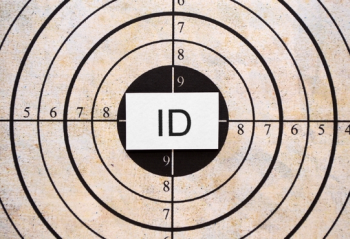How to Tell If Your Identity Is Stolen – 6 Key Clues
 If you’re wondering how to tell if your identity is stolen, you aren’t alone. According to Javelin Strategy & Research Inc.’s 2011 Identity Fraud Survey Report, the average time it takes for an individual to discover that their identity has been stolen is 68 days, or just over two months. This is plenty of time for an identity thief to do serious damage to your credit report and move on before he or she risks getting caught.
If you’re wondering how to tell if your identity is stolen, you aren’t alone. According to Javelin Strategy & Research Inc.’s 2011 Identity Fraud Survey Report, the average time it takes for an individual to discover that their identity has been stolen is 68 days, or just over two months. This is plenty of time for an identity thief to do serious damage to your credit report and move on before he or she risks getting caught.
Identity thieves know this, and also know that once the theft is uncovered consumers typically only use identity theft protection services for one year. As a result, according to Cooper Bachman (pdf), an analyst for ID Analytics, identity thieves tend to use an identity for just two weeks before abandoning it. The next attack won’t come until a year or more later, when any identity theft protection purchased is likely to have lapsed.
So how do you know if someone has stolen your identity? Read on for my best tips for early detection of identity theft.
The 6 Clues That Your Identity May Have Been Compromised
As with any advice regarding your financial well-being, the best thing that you can do to ensure identity theft is deterred is to be vigilant. If you’re asking “How can I tell if my identity has been stolen?” you may already be at risk. Since criminals who steal identities tend to move quickly, it’s wise to act immediately if you see any of these signs that explain how to tell if your identity is stolen.
- Your child receives credit card applications in the mail when they have no credit. Credit card applications are never sent to individuals without a credit history, so the appearance of this junk mail alerts you that a credit history has been started for your child.
- You receive new credit cards in the mail that you didn’t sign up for. Most identity thieves are careful to add a new address to your credit history (one they control, of course) before signing up for any new credit, but sometimes the credit card issuer sends the card to your real address. If you receive an actual credit card, not just an offer, and you didn’t ask for it, act fast.
- You notice payments you did not make on your credit card statements. It sounds counter-intuitive, but sometimes identity thieves will make minimum payments on credit cards in order to hide and extend fraud. Always examine your credit card statements carefully.
- You’re contacted by collection agencies, especially for unfamiliar or even off the wall purchases. If you are not late on any payments but are receiving collection calls or letters, there is a problem. Mail orders are an easy, and therefore popular, target for these lapsed payments; my neighbor was a victim involving an alleged order of five NASCAR watches. He had to ask me what NASCAR was – and how to fix the problem!
- There are discrepancies in your credit reports. One of the areas on a credit report that is frequently overlooked is the address history. Your address history is just as important as your credit information, since thieves will try to control your mail to hide their crime.
- You stop receiving anticipated bills. If you stop receiving bills that you should be getting every month, especially your credit cards, contact your credit card companies to find out why without delay. This could be a sign your address has been changed on your credit report.
So how do you know if your identity has been stolen? If you see any of these signs, your identity may have been stolen already, so don’t put off contacting your financial institutions right away.

